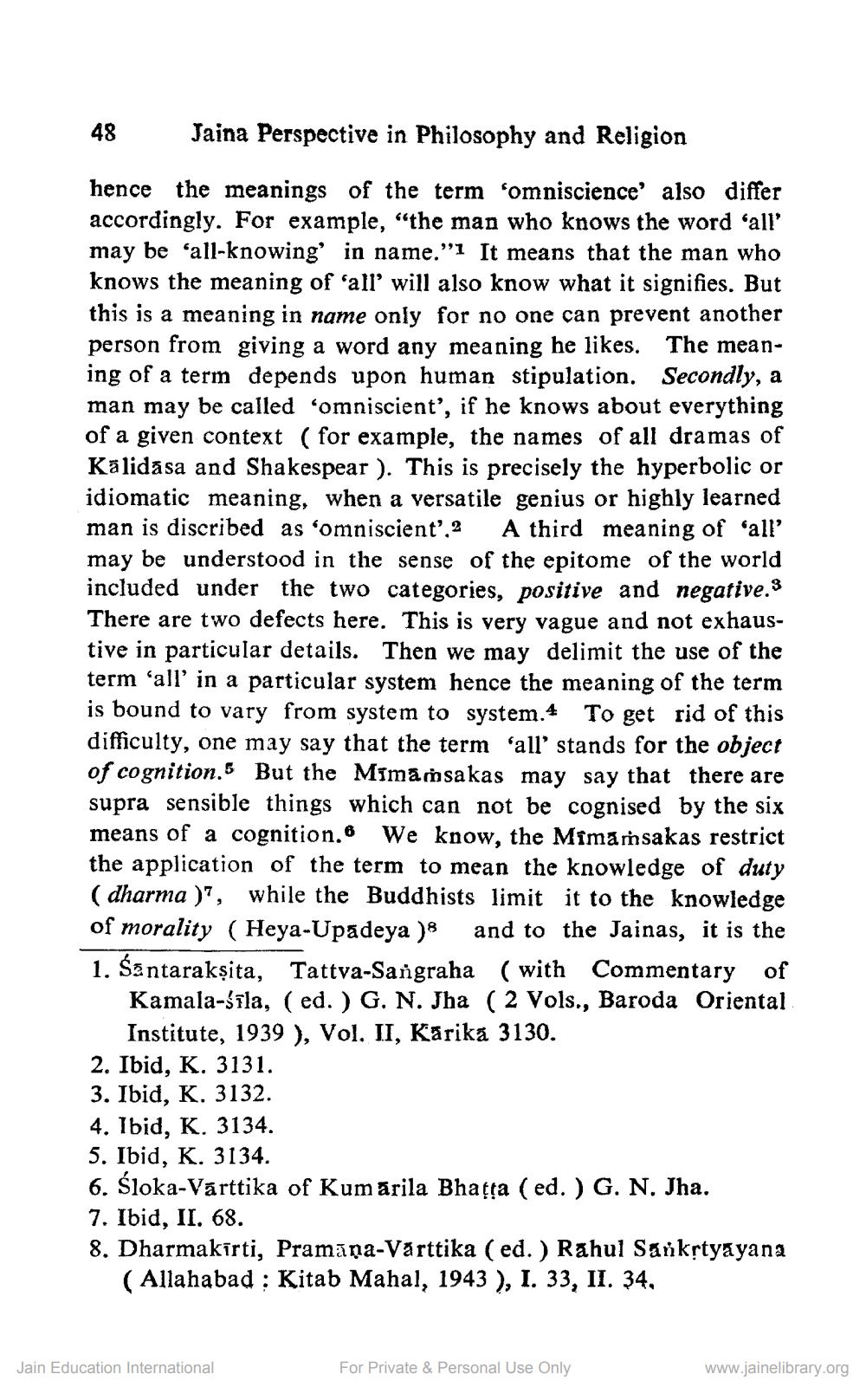________________
Jaina Perspective in Philosophy and Religion
hence the meanings of the term 'omniscience' also differ accordingly. For example, "the man who knows the word 'all' may be 'all-knowing' in name." It means that the man who knows the meaning of 'all' will also know what it signifies. But this is a meaning in name only for no one can prevent another person from giving a word any meaning he likes. The meaning of a term depends upon human stipulation. Secondly, a man may be called 'omniscient', if he knows about everything of a given context (for example, the names of all dramas of Kalidasa and Shakespear). This is precisely the hyperbolic or idiomatic meaning, when a versatile genius or highly learned man is discribed as 'omniscient',2 A third meaning of 'all' may be understood in the sense of the epitome of the world included under the two categories, positive and negative.3 There are two defects here. This is very vague and not exhaustive in particular details. Then we may delimit the use of the term 'all' in a particular system hence the meaning of the term is bound to vary from system to system.4 To get rid of this difficulty, one may say that the term 'all' stands for the object of cognition. But the Mimamsakas may say that there are supra sensible things which can not be cognised by the six means of a cognition. We know, the Mîmamsakas restrict the application of the term to mean the knowledge of duty (dharma )", while the Buddhists limit it to the knowledge of morality (Heya-Upadeya )8 and to the Jainas, it is the 1. Śantarakṣita, Tattva-Sangraha (with Commentary
of
Kamala-śīla, (ed.) G. N. Jha (2 Vols., Baroda Oriental Institute, 1939), Vol. II, Karika 3130.
48
2. Ibid, K. 3131.
3. Ibid, K. 3132.
4. Ibid, K. 3134.
5. Ibid, K. 3134.
6. Śloka-Varttika of Kumarila Bhatta (ed.) G. N. Jha.
7. Ibid, II. 68.
8. Dharmakirti, Pramana-Varttika (ed.) Rahul Sankṛtyayana (Allahabad Kitab Mahal, 1943 ), I. 33, II. 34.
Jain Education International
For Private & Personal Use Only
www.jainelibrary.org




